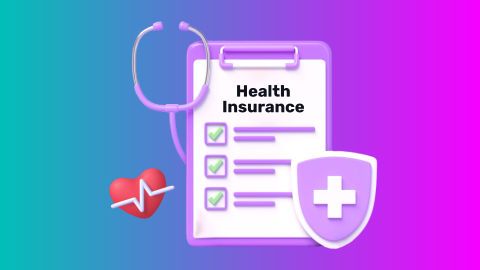A Group Health Insurance policy provides health insurance coverage to a group of people with some commonality. For example, employee-employer, bank-customers, and society-members. So, group health insurance policies let organisations, banks, housing societies and companies provide health insurance for their members or staff so that in the event of a medical emergency they have the financial support that is required.
When it comes to group medical insurance plans between employees and the employer, it’s a two-way street that is beneficial for employees as well as employers. Employees can get the benefits of a health insurance policy while employers are able to strengthen their employee retention plan and also avail of tax benefits.
What is Group Health Insurance?
Group health insurance policies are designed to cover a specific group of individuals—typically employees of an organization—and are offered as part of an employment benefit. Employees often have the option to extend this coverage to their family members, including spouses, children, and parents. The extent of coverage and the affordability of the policy largely depend on the plan selected by the employer.
One of the most significant advantages of group health insurance is immediate coverage for pre-existing conditions, without any waiting period. These policies also offer comprehensive benefits such as treatment for common illnesses, maternity coverage, daycare procedures, and wellness programs, among other features.
In contrast to individual health insurance plans, which often come with fixed waiting periods and higher premiums, employer-sponsored group health insurance is regarded as an essential benefit—offering both value and security to employees.
Why is group health insurance important for employers and employees?
Health insurance has become quite necessary to care for your and your family's health (check family health insurance), due to changing scenarios. Health-related problems can arise at any point in life and can cause a substantial financial burden and dig into savings for many. This is where group health insurance and group medical insurance come in handy.
For Employers
Cost-effective coverage
Group health insurance allows employers to offer medical coverage to their teams at lower per-person costs compared to individual policies. It helps retain talent, reduce absenteeism, and ensures employees receive timely care—without significantly impacting the company’s financials.
Tax Benefits
Premiums paid towards group health insurance are considered a business expense and are eligible for tax deductions under the Income Tax Act. This helps employers reduce their taxable income while also investing in employee well-being.
For Employees
Extensive coverage
Employees benefit from broad coverage that includes hospitalization, maternity care, specialist consultations, and day-care procedures. Since these plans are designed for large groups, insurers typically offer enhanced features at competitive pricing.
Coverage for family at zero cost
Many employers extend group health insurance benefits to employees’ immediate family members—like spouses, children, and even parents—at no extra cost or minimal contribution, providing financial protection for the entire household.
No waiting period
Unlike individual policies, group health insurance usually covers pre-existing diseases from day one. This instant coverage ensures that employees and their dependents can access medical treatment without worrying about waiting periods or exclusions.
Preventive care services
Group plans often include preventive health checkups, wellness programs, mental health support, and vaccination drives. These services help employees stay healthier, detect issues early, and reduce long-term treatment costs.
How does group health insurance plan work?
Group health insurance plans are purchased by companies or organizations and offered to their employees or members. These plans cannot be bought by individuals and typically require at least 70% participation from eligible group members for activation.
Once a plan is selected by the organization, employees are given the choice to either opt in or decline coverage. Some group plans offer tiered options—ranging from basic coverage to enhanced plans with additional benefits. The premium is usually shared between the employer and the employees, and coverage can often be extended to immediate family members or dependents for an additional fee.
Group health insurance is generally more affordable than individual plans because the risk is distributed across a larger number of people. This collective participation makes the premiums lower and the coverage more cost-effective.
Here is how group health insurance functions:
Who should purchase Group Health Insurance?
Employers and organisations should purchase a group insurance policy to provide health coverage for their employees. This policy benefits companies by enhancing employee satisfaction and retention, while also offering comprehensive medical coverage. Small businesses, startups, and large corporations alike can ensure their workforce is protected against medical expenses, promoting a healthier and more productive work environment.
Small businesses
Group health insurance helps small businesses attract and retain skilled employees by offering valuable health benefits. It provides affordable coverage, boosts morale, and shows a commitment to employee well-being—without significantly straining limited resources.
Medium businesses
For growing companies, group insurance supports employee satisfaction and continuity. It helps reduce absenteeism, improves productivity, and positions the business as an employee-centric organization, all while keeping healthcare costs predictable and manageable.
Large businesses
Large corporations can streamline employee health benefits with group insurance plans that offer broad coverage and customizable options. These plans enhance workforce loyalty, ensure compliance, and support health initiatives at scale for a diverse employee base.





